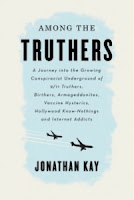 |
The best story in this collection is the first one, about a Canadian, who speaks some Japanese, working at a coffee shop in Osaka to make ends meet. The coffee shop, built after the war, is slated to be demolished to make way for some new developments, and there is some trepidation that a certain lifestyle was about to come to a end. Shot through with bits of humour (even if some of it seems a bit forced - the idiom mangling English student, for example) you can tell it's a serious work of fiction because the coffee shop isn't saved.
This "serious work" tag infects most of these stories - objects take on significance, narrative shifts through time, connections are drawn between relationships and larger events. At times the stories collapse under this seriousness, but at other times it works - a story in which a man (Caucasian) takes his daughter (born to a Japanese mother) back to Japan ends in uncomfortable territory.
Of course there's the war and the bomb and a sense of old Japan dying to make room for a new Japan (though it should be pointed out that the old Japan, such as it was, created the conditions for the war) and proverbs that start stories and a very unbelievable episode involving Yakuza kidnapping an English teacher.
These stories are trapped in a certain time period - both a certain time in Japan and a certain time in Canadian fiction - and the energy created in the first story failing to sustain itself throughout the collection.





